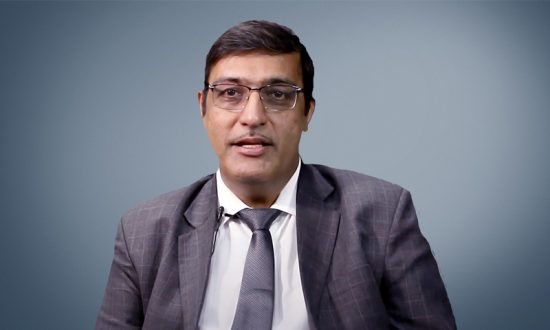Sunil Dahiya, EVP, Wadhwani Opportunity from Wadhwani Foundation leads the Wadhwani Opportunity Program in Asia and is expanding its footprint in emerging economies. He undertook multi-initiatives at NIIT and contributes to building industry connections for placing 200K students. Mr. Dahiya Co-founded a new business venture ‘Stackroute’ and led the B2C digital Transformation series. With immense experience of 25 years in vocational & training space, Sunil Dahiya has Hons in Economics from Delhi University. In a conversation with Higher Education Digest, Sunil Dahiya talks about India’s skilling ecosystem, digitization and its impact on the future of re-skilling in India, skill development challenges and many more.
Do you think schooling and skilling go together?
Given the current circumstances, it is imperative to prepare the youth for employability skills to recover from the problem of joblessness. An adjustment in the education system can bring about the positive change where schools also engage students in skilling them and open the doors to various career opportunities for them.
Unless we are awaiting a demographic disaster, we must ensure that India, which comprises the world’s largest youth population, embraces the schooling and skilling culture with the help of vocational teachers and other facilities.
Briefly talk about the changes in the learning paradigm due to pandemic
The pandemic has radically transformed the traditional education scenario by adopting digital means which overlook the problem of physical schooling while embracing remote learning. This shift is reshaping the future of education with the help of digital tools that are making e-learning fun and engaging. Looking at the havoc created by the pandemic, the change was inevitable and students across the world have gradually accustomed themselves to not only study but also get assessed online.
How employability (soft) skills in combination with hard skills provide a competitive edge?
The key to making rapid progress lies in developing both soft skills such as leadership and communication and hard skills including the technical know-how of your job. In a typical setup, all the employers are quintessentially looking for both skill sets. While hard skills are developed through training and education, soft skills are personality traits that you cultivate over a period of time. Both are necessary to have a competitive edge and to climb higher up the ladder in any given field of work.
Briefly explain digitization and its impact on the future of re-skilling in India
The pandemic has accelerated the need for change by disrupting economic activities and fast-tracking the process of automation and digitization. In this process, it has devastated labour markets, but on the other hand, it has also created opportunities on the digital platform.
On the industrial level, the existential crisis for companies is prospects of job loss and the thought that atomization may replace the human force or cause a drop in their incomes. In such a scenario, reskilling is crucial and we must prepare our workforce, students and communities accordingly.
What would be some skills for the future according to you that organizations must hire for?
According to PwC, for employers in the manufacturing and service sectors, technology-related skills would be in demand soon. In addition to this, generic skills like cognitive ability, integrated thinking, emotional intelligence and empathy, management and leadership, social intelligence will also be required over technical skills. Despite the changing context of work, people continue to desire ‘good work.’ Therefore, we must learn to nurture existing human skills, build trust and use analytical data.
What are the skill development challenges in India, and how to tackle them?
Given the fast-paced economy and changing working environment due to technological advancements, the country must capitalize on its youth and equip them with employable skills and lead the nation on the path of overall development.
As per Human Development Report 2020, India ranks at 129th among 162 countries with only 21.2 per cent of its workforce skilled. Several factors pose challenges when it comes to skill development, including limited training capacity and inadequate scale, lack of vocational training courses, insufficient participation of industries, shortage of quality trainers, and less passion in youth.
Managing the skillset in youth for a country’s economic growth requires collaboration and engagement from governments, organizations, industries, and society. The viability and propensity of responsible approach and policies should guide them to chalk out a roadmap for maintaining a balance of automation and human involvement.
How Wadhwani Foundation and Wadhwani Opportunity are working for Skilling the Youths? Please explain briefly
Wadhwani Foundation and its Wadhwani Opportunity initiative started by first meeting the Industry experts and concluding on the clear need of training the students on 21st century core employability skills (soft skills). Academia does impart the domain skills, however, there is a clear need to standardise the soft skill curriculum in Schools, ITIs, Polytechnics, Skill centres, Colleges & Organizations. Hence, we launched an end- to-end solution (from Mobilisation to Counselling to Training to Placements and Post Placements) for students undergoing skill training. Our goal is to ensure 15Mn students are effectively imparted with the 21st century employability skills and successfully placed in Industry with family supporting wages by Dec 2030.




